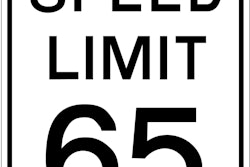
Anyone who has kept up with my blogs knows that I am a road chaplain with Channel 21 Ministries. While I try not to shove my faith down the throats of those not willing to listen, when I see so many people hurting throughout our nation, it really breaks my heart.
For months now we have guided our trucks into areas of civil unrest. The protests, some devolving to rioting, seem to never end. Some companies are avoiding deliveries to cities where drivers may be at risk, and drivers who are willing to take that risk are on edge. While I do not understand, find it necessary, or believe it is the right approach to burn and loot businesses and commit other acts of violence to make a point, I understand the reasons for the unrest. I can step back enough to look at different perspectives, and in so doing see clearly that those hurting have legit reasons for their pain.
Some of this is just driven deeper by the vocabulary used by ignorant people. Today, as I was driving down the road, I was listening to news about advocates wishing to remove all symbols of “White Jesus,” a depiction of Christ I have always found absurd. Jesus was a man of the Middle East, and his genealogy is well documented in scripture.

The news included results of a study that involved interviews of parishioners and leaders of U.S. churches of varying ethnic backgrounds. Researchers discovered that most respondents grew up with “white Jesus” and never thought of him differently. Even those in predominantly Black American churches had never thought of Jesus in the light of his ethnic background. One pastor recalled the first time he saw Christ depicted as black — and how that changed his image of the Savior.
The study also discovered that depicting a “white Jesus” subconsciously instilled a white-supremacy mentality in those seeing Christ in that form, even in the minds of those with different ethnic backgrounds. This offered insight into the mindsets that played into the character weaknesses of those forming and joining supremacy groups. Researchers suggested using more-correct ethnic depictions of Christ, though they believe it might take generations before that would make any difference.
It reminded me of the teachings of Jesus and the disagreements he initiated in his time. Bigotry and ignorance had been around long before then, and interactions with those deemed unworthy or despicable (to use an old term) put Jesus at the center of controversy with the leaders of his time.
Yet he continued to teach and show that judgement belonged to God, and that we were to love unconditionally. He did not hold to the labels that degraded others because these labels stood in the way of love. It’s another reason the unrest we see today can break our hearts. If we truly believe in those teachings, and similar belief holds true in most religions, then we must question our own use of labels and certain vocabularies.
I find it frustrating that with all of the legitimate reasons for today’s unrest, very few people have offered sound approaches to correct the issues. With the teaching of unconditional love for our fellow man, Jesus offered a solution, but if you do not ascribe to such a vision, then we are at an impasse.
Perhaps changing our vocabulary and understanding the effect of harmful labels would be a simple start. Then again, if it’s anything like researchers’ conclusions about changing the way we depict the image of Christ, changing our vocabulary might take generations to make a difference. We do have to start somewhere, though.
Even if you do not believe, perhaps you can take something from other scripture that teaches we are all created in the image of God. But no matter what your religion, if you keep that principle in mind every time you look into a mirror, the image you see is that of the divine looking back at you, no matter what color eyes you are looking through.
Labels that Christ never railed against were useful ones like mother, father, carpenter or, in our case, truck driver. Truck driver covers a wide variety of jobs, and it doesn’t differentiate by race, gender, or age. It simply defines what we do for our families, uniting us in one common cause. Like Christ, we should define ourselves with vocabularies of equanimity. Remember, we all have one label that should unite us in brotherhood — “American,” defining the American dream of life, liberty and the pursuit of happiness.
This is our common cause. When we see our brother hurting because of injustice, we should unite in the cause of solution. As for the idea of “supremacists,” there was only one who Jesus labeled supreme, God Himself, and taught us unconditional love by example.










